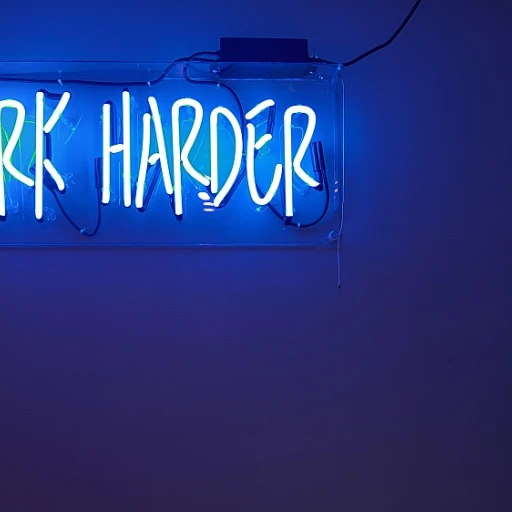
Defining Favoritism in the Workplace
Unpacking Favoritism in Modern Work Environments
Favoritism in the workplace refers to instances where a manager or team leader gives preferential treatment to specific employees, not based on performance or merit, but rather, on personal relationships or biases. This could manifest in various forms such as promotions, workload distribution, or opportunities for development that unfairly benefit "favored employees."
Such scenarios raise a critical question: Is favoritism illegal? While it might not always be explicitly deemed illegal, it does pose significant ethical issues and could potentially violate employment law if it crosses into illegal discrimination. Favoritism can damage the work environment, leading to negative implications for the team, affecting employee morale and productivity, as explored further in discussions about the impacts on corporate culture.
The challenge rises when distinguishing favoritism from discrimination harassment. While workplace expectations allow for some managerial discretion, the line between personal preference and unlawful treatment can often blur, necessitating clear managerial guidelines and employment practices to ensure fairness.
The Legal Landscape: Is Favoritism Illegal?
Legal Implications of Favoritism
In navigating the complex terrain of employment law, a pressing question often emerges: Is favoritism illegal within the workplace? Understanding the nuances is essential, as the legality of workplace favoritism isn't black and white. Unlike illegal discrimination, which is explicitly prohibited by law, favoritism itself does not violate employment law unless it involves preferential treatment based on protected characteristics such as race, gender, or age. When favoritism crosses these lines, it can then be classified under "illegal discrimination," akin to discrimination harassment and sexual harassment cases. Favoritism becomes problematic when it results in unfair treatment work practices that could lead to a hostile work environment. Employees feel the impact when decisions are influenced by biases that overlook merit based performance and contributions to the team. In this sense, although favoritism workplace makes employees question fairness, it is not always tantamount to illegal actions unless coupled with discriminatory practices. {% link 'https://www.corporate-culture-institute.com/blog/mastering-product-backlog-refinement-in-scrum-organizations', 'employment law details' %} In summary, for favoritism to warrant legal action, it must intersect with unlawful discrimination practices. This can impact legal recourse options available to employees and shape the way managers approach decision making. Exploring avenues such as consulting a lawyer directory could aid in addressing potential concerns where favoritism is perceived as crossing into illegal favoritism. Understanding the boundary between favoritism and discrimination can guide both employees and managers toward fostering equitable opportunities in the workplace.Impact of Favoritism on Corporate Culture
The Ripple Effects on Company Atmosphere
Favoritism in the workplace can have a profound impact on corporate culture, affecting not only individual employees but also the overall work environment. This preferential treatment can lead to a significant shift in employee morale and productivity. When managers consistently show favoritism towards certain employees, it creates an inequitable environment, leaving others feeling undervalued and demotivated. This perception of unfairness can lead to a decline in employee engagement and commitment.
Within this context, it's essential to distinguish between favoritism and illegal discrimination. While favoritism is generally based on personal relationships or preferences, illegal discrimination involves inequitable treatment based on protected characteristics such as race, gender, or age. However, both practices can result in a toxic work environment if left unaddressed, undermining team dynamics and overall organizational performance.
The presence of workplace favoritism can lead to decreased productivity, as employees who are not favored might feel that their hard work and performance are not adequately recognized. This can result in a lack of motivation, causing a decline in overall job satisfaction and productivity. Furthermore, workplace favoritism can also affect team cohesion, leading to conflicts and communication breakdowns. The favored employees may receive opportunities for promotions and special projects that are not merit-based, further exacerbating resentment among the team.
To cultivate a healthy corporate culture, it is essential for employers to create a transparent and fair decision-making process. By addressing issues of favoritism head-on, companies can foster an inclusive and equitable environment that values performance and ensures that all employees have the opportunity to succeed based on their merits. This not only improves the work environment but also contributes to the long-term success of the organization.
Distinguishing Favoritism from Discrimination
Recognizing the Thin Line between Favoritism and Discrimination
Within the context of corporate culture, distinguishing favoritism from illegal discrimination is essential for both employees and managers. Favoritism largely involves providing preferential treatment to certain employees based on personal relationships, connections, or subjective judgements rather than merit-based performance or qualifications. For instance, a manager may offer opportunities or promotions to favored employees simply because they share common interests outside of work. In contrast, illegal discrimination in the workplace pertains to unfair treatment of employees based on legally protected characteristics such as race, gender, age, or religion. Discrimination harassment is prohibited by employment law, and it is crucial to differentiate between actions that constitute illegal discrimination and those that are simply manifestations of favoritism. Managers and team leaders must be conscious of their decision-making processes to ensure they do not inadvertently engage in discriminatory practices. Although workplace favoritism may not always be illegal, it creates an environment where employees feel undervalued or marginalized, potentially leading to claims of discrimination. While favoritism does not automatically equate to illegal discrimination, when preferential treatment is based on characteristics protected by law, it crosses into unlawful territory. By fostering a merit-based environment where transparency is prioritized, organizations can mitigate the negative impact of favoritism and avoid stepping into the realm of discrimination. Implementing clear policies and providing training can support managers in making equitable decisions that benefit the entire workforce.Addressing Favoritism: Strategies for Employers
Proactive Measures to Mitigate Favoritism
Addressing favoritism in the workplace is essential for creating a fair and equitable environment. While favoritism itself may not always be illegal, unlike illegal discrimination based on protected characteristics, it can still erode trust and teamwork. Here are some actionable strategies managers and organizations can implement:- Set Clear Policies: Develop and enforce policies that explicitly outline what constitutes preferential treatment and what is considered appropriate conduct. This creates a standard for managers and employees to follow, reducing ambiguity in decision-making.
- Promote Merit-Based Rewards: Ensuring promotions and benefits are awarded based on performance and qualifications supports an unbiased work environment. Transparency in criteria and decision-making can curb the perception of favoritism.
- Enhance Communication: Facilitate open dialogue between employees and management. Encourage employees to voice concerns regarding unfair treatment without the fear of retaliation. This open line of communication helps address grievances promptly and effectively.
- Train and Educate: Regular training sessions for managers on implicit bias, discrimination, and the negative effects of favoritism can heighten awareness. Educating the workforce about their rights under employment law and cultivating an inclusive workplace culture is fundamental.
- Implement an Anonymous Reporting System: Establish a confidential channel for employees to report favoritism or discrimination harassment. Ensuring anonymity in reporting can help uncover issues that would otherwise go unnoticed.
- Regularly Review Workplace Practices: Conduct frequent reviews and assessments to ensure no preferential treatment or favoritism work practices are present. This helps in maintaining a balanced and fair work environment.
Employee Rights and Recourse
Safeguarding Your Rights as an Employee
Experiencing favoritism in the workplace can be disheartening and may affect your job performance and satisfaction. However, it's crucial to remember that there are steps you can take to address these issues. Although workplace favoritism is not always outlawed under employment law, understanding your rights and the available recourse can be beneficial. Here are some steps employees can take:- Document your experiences: Keep a detailed record of instances where you perceive favoritism, noting dates, times, and any related outcomes. This documentation can be valuable if you decide to address the issue formally.
- Review your company's policies: Most organizations have a privacy policy or guidelines that outline fair treatment, workplace conduct, and performance-based evaluations. Familiarize yourself with these documents to understand your rights.
- Seek advice from HR or a trusted manager: If you feel comfortable, reach out to a human resources representative or a manager that you trust. Share your observations objectively, sticking to facts rather than opinions, and inquire about the company's position on preferential treatment.
- Consult the employee handbook: Your organization's employee handbook may contain information on how to handle discrimination or harassment, which sometimes overlaps with favoritism issues.
- Consider legal counsel: If the situation persists and impacts your work environment significantly, it may be beneficial to consult a lawyer. A lawyer directory can direct you to employment law specialists who can advise you on your specific situation and potential legal steps you can take.
- Research employment laws: Be aware of relevant employment laws in your jurisdiction that may protect you against illegal discrimination or harassment. While favoritism is generally not considered illegal, there might be overlapping elements of discrimination based on protected characteristics.













